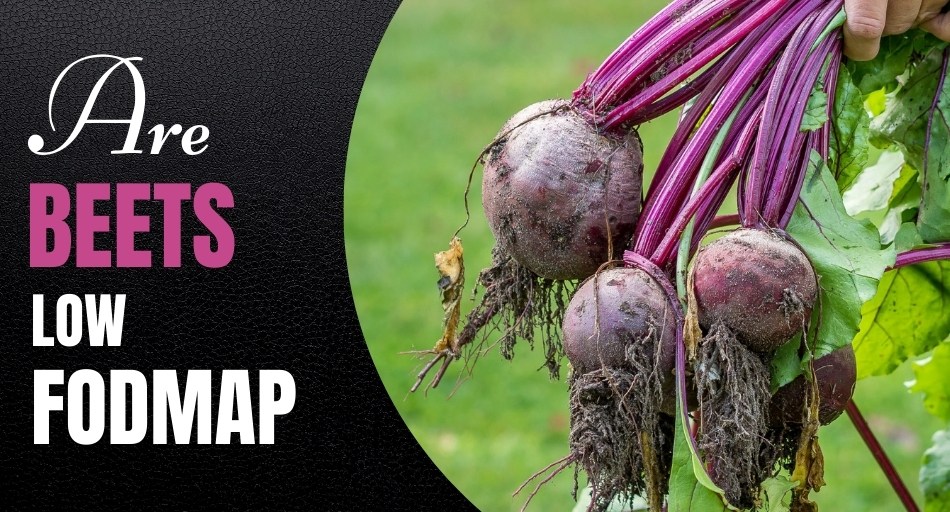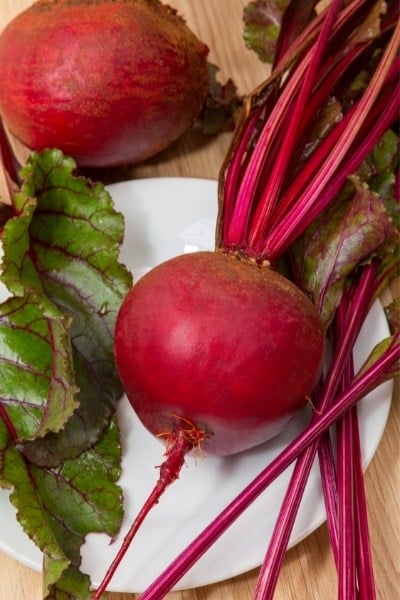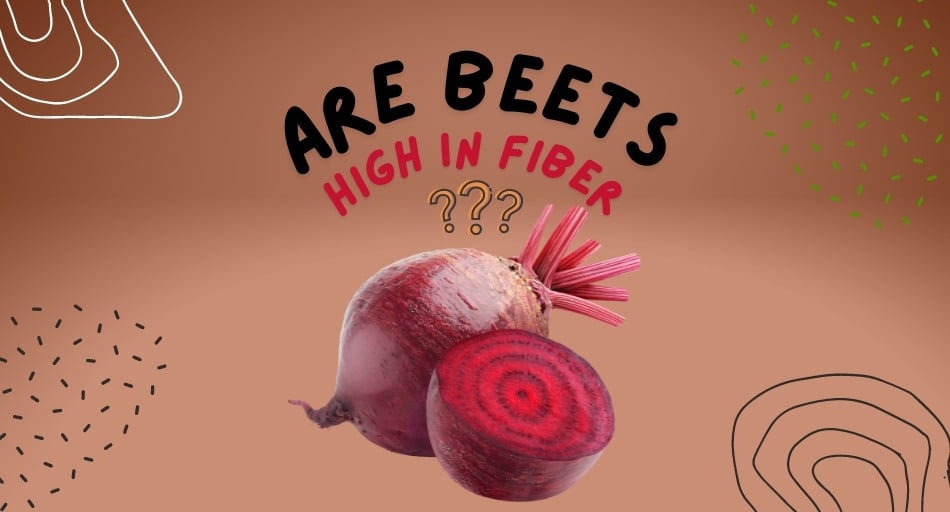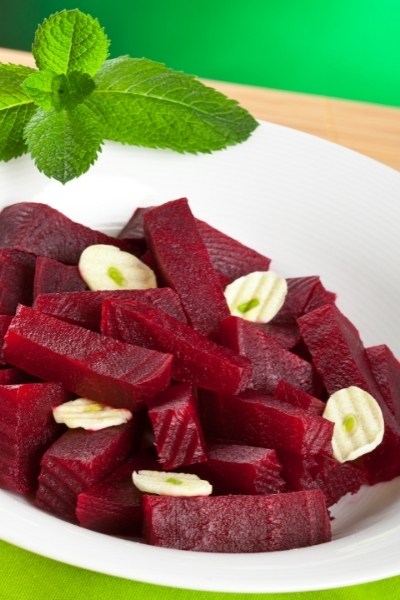A Low FODMAP diet can seem terrifying at first. But it’s actually really easy once you familiarize yourself with the foods allowed on such a diet.

When you do that, you can still consume your favorite foods but in smaller amounts without causing any IBS flareups.
Many veggies are allowed in decent amounts on a low FODMAP diet, but not all of them are low enough in these indigestible carbs.
For example, beets contain a lot of carbs, so are they suitable for a low FODMAP diet?
Table of Contents
Are beets low FODMAP?
Unfortunately, beets are rather high in FODMAPs, so it might be best to avoid them on a low FODMAP diet. While it’s OK to eat very small portions of beets, it’s often hard to stick to such a small serving.
So, always start off small when introducing new foods to your diet.
If you can eat beets, though, you can get a lot of wonderful health benefits. For example, beets are a great source of folate, manganese, potassium, and even fiber.

They also contain plant compounds that improve your health and prevent diseases.
How high in FODMAPs are beets?
Beets are one of the vegetables that are high in FODMAPs, so they should be strictly limited on a low FODMAP diet.
Some people claim that servings of ¾ ounce (20 g) can be OK and classified as low FODMAP, though.
But always start with a smaller serving, especially if your IBS symptoms are severe.
You can also try presoaking beets before cooking them. This can decrease the number of indigestible carbs found in them.
Another way you can go about it is eating canned beets without the brine they come with. This, again, decreases the amount of FODMAPs, as they leak into the brine after canning.
So, canned beets might be a better alternative for people with IBS and other digestive system issues.
Are beets good for you?
Beets are very low in calories, containing only about 37 calories in a ½-cup serving. Most of these calories come from carbohydrates, including fiber and sugars.
Luckily, beets aren’t too high in sugar, so eating them can be beneficial for a weight loss-friendly diet.
One of the most abundant nutrients in beets is folate. Also called vitamin B9, this micronutrient is crucial for the formation of red blood cells. It’s also important during early pregnancy as it reduces the risk of birth defects of the brain and spine.

Because of that, folate is often included in prenatal supplements, but it’s much better to get this nutrient from natural sources like beets.
Studies also show that eating beets has a great effect on elevated blood pressure. Because of that, beets have the ability to lower it, thus reducing your risk of heart attacks, heart disease, and strokes.
Beets also contain potassium, which has the same effect on your blood pressure as other compounds found in this root vegetable.
Aside from that, potassium helps offset the negative effects of sodium on your blood pressure.
So, eating beets is very beneficial for the health of your cardiovascular system.
Additionally, several studies show that the nitrates that beets contain can improve athletic performance.
Experts say that beets and beetroot juice can make you less exhausted while working out while boosting your cardiorespiratory performance and efficiency.
As a result, beets and beetroot juice can be a great snack after or during a workout.
What’s more, the same nitrates have been studied for their benefits on brain health. Eating beets and drinking beetroot juice has been shown to reduce the risk of dementia and other neurodegenerative disorders.

Experts believe that it’s because these nitrates help improve blood flow to the front part of the brain, which improves memory and focus.
Beets also contain several plant compounds that have anti-inflammatory and anti-cancer properties.
Studies have found that these compounds lower your risk of certain types of cancer as well as suppress the growth of tumors.
Other anti-inflammatory compounds can help fight chronic inflammation and other health issues that come with it.
Can you eat beets on a low FODMAP diet?
Beets are a rather high FODMAP root vegetable, so they should be limited on a low FODMAP diet. Small servings are still allowed, but make sure not to overdo it, as the indigestible carbs can add up very quickly.
If you can’t live without beets but are following a low FODMAP diet, try choosing canned beets, as they’re lower in FODMAPs.

Also, if you want to drink beetroot juice, stick to small servings too, about half a cup in one sitting.
Are beet greens high in FODMAPs?
Unfortunately, beet greens haven’t been tested for their FODMAP content. So, it might be best to avoid them, especially at the very start of a low FODMAP diet.
Later on, you can try small amounts to see if your body’s reacting negatively, and if not, you can include them in your diet.
Beet greens are very nutritious, providing you with a lot of fiber, vitamin A, vitamin K, iron, potassium, and selenium. So, eating them can improve your health in a lot of ways.
Is beet juice low in FODMAPs?

In small amounts and without other additives, beet juice is considered a low FODMAP beverage.
But watch out for added ingredients. This is important since beet juice is often made with apple juice, which is high in FODMAPs.
So, always read the nutritional label before drinking your beet juice.
Conclusion
In general, beets are considered a high FODMAP food that should be limited on a low FODMAP diet.
Some people might be able to tolerate small amounts of beets, though, so you can try adding them to your diet.
But do so slowly to avoid any unpleasant IBS symptoms.
Beets are rich in various nutrients, so they can be beneficial in disease prevention and health improvement.
As a result, if your digestive system tolerates this root veggie, it might be a beneficial addition to your diet, even if in small amounts.
Sources: Nutrition Data, National Library of Medicine, and PMC
